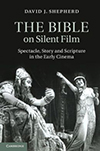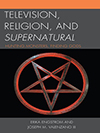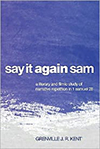- Author(s): Joseph Kickasola
- When: 2016-01
- Where: Journal of Religion & Film
Once Upon a Time in Anatolia: a religiously complex film and a complex filmmaker, from a complex nation. Nuri Bilge Ceylan’s Turkey is constantly balancing a secular constitution, Muslim majority (around 99%), and unavoidable early Christian history. This complexity—indeed, tension—shows forth in the film. In the end, the film can be seen as a type of ritual of skepticism, whereby one confronts darkness, horror, and hopelessness consistently, for a constructive purpose. This essay explores these complex religious dynamics through an analysis of Ceylan’s formal choices. From the mythic title (“Once Upon a Time”), to his theologically suggestive use of natural forces (wind, fire, lightning), to his complicated relationship with the aesthetics and power of the religious icon, we see a formal articulation of timeless issues beyond words. It at once evokes religious experience and existential nihilism, co-present as hammer and anvil, able to create or destroy the shield of faith.








